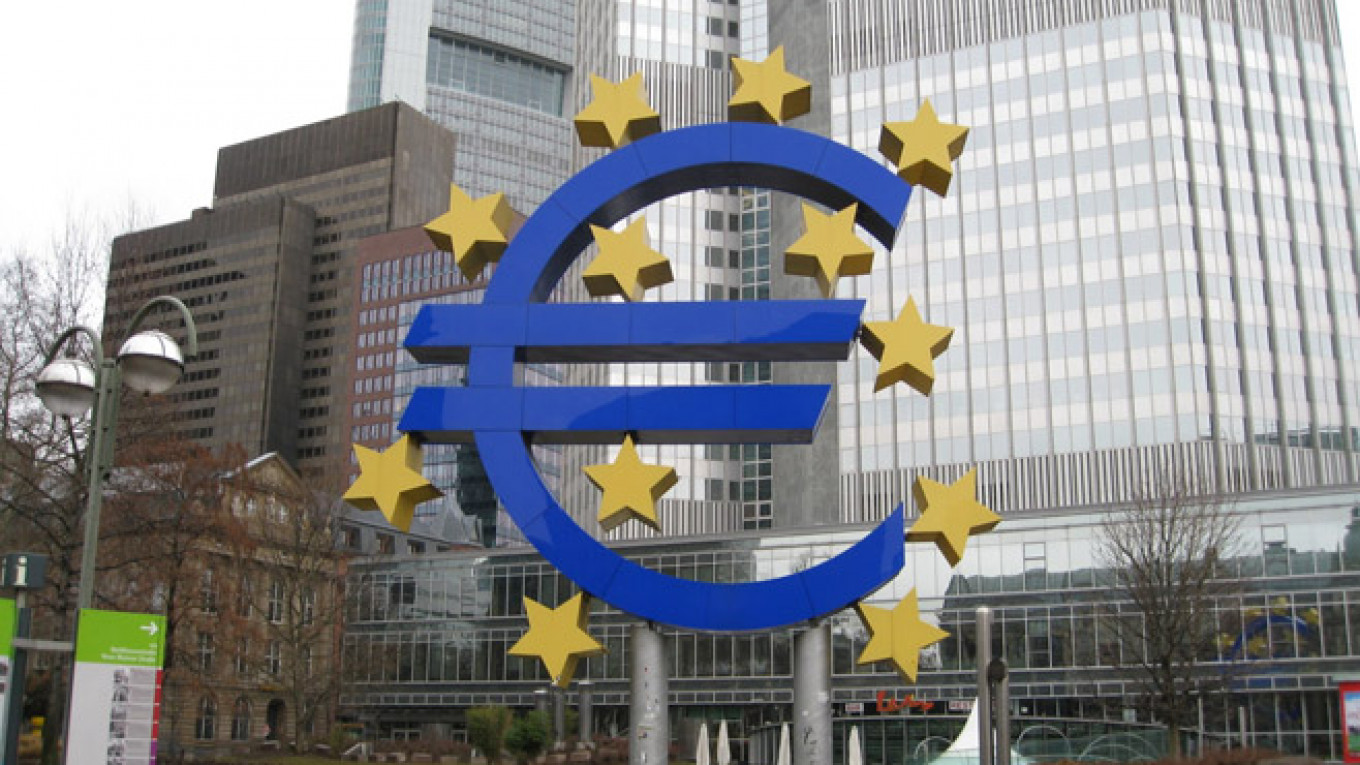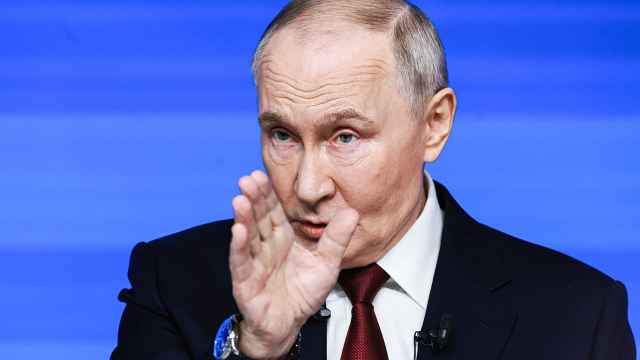FRANKFURT — Major Russian banks active in the euro zone could face caps or even exclusion from borrowing from the European Central Bank as it examines how European sanctions against Moscow affect its operations.
Euro-zone banks use the ECB to manage their day-to-day liquidity flows and relied on the Central Bank almost exclusively when interbank markets dried up at the height of the global financial crisis as trust among banks evaporated.
Being able to tap Central Bank refinancing operations is crucial for banks, especially when others may not be willing to lend to them. The ECB’s decision will therefore be decisive for the sanctioned Russian banks’ European business operations.
“The intention is clear: The EU subsidiaries in their legitimate business should not be negatively impacted. That is the thrust of the regulation and I am not hearing many people say otherwise actually. We’ll see if the ECB goes beyond that,” said a source familiar with the discussions.
Among the banks in question are the Austrian arms of Russia’s two largest banks, Sberbank and VTB Bank, which the ECB thought so significant it decided to supervise them directly when it takes on banking oversight in the euro zone in November.
Sberbank is run by German Gref, an ally of President Vladimir Putin, and VTB is majority-owned by Russia. Sberbank’s Austrian unit declined to comment when contacted by Reuters.
VTB Bank referred to a statement in which it said neither its Austrian unit nor its subsidiaries in Germany and France were targeted by the sanctions. It added that their operations were unaffected.
The ECB could decide to freeze transactions between the euro zone subsidiaries of the affected Russian banks and the euro system, introduce caps on how much funding they can take, or leave things as they are and monitor capital flows to ensure funds are not being passed on to the Russian parent companies.
“The ECB will take all necessary steps to prevent circumvention of the EU restrictive measures, in the context of its monetary policy operations,” an ECB spokesperson said.
Russia is Austria’s ninth-biggest trading partner. Positioned on the edge of the Iron Curtain that divided Europe until 1989, Austria was a gateway to the eastern bloc and became a base for doing business with the former communist countries.
Even if mainly a legal issue for the ECB, the development shows how difficult it has become for the Central Bank to keep out of politics given the depth and complexity of financial interconnections and at a time when it is taking on more responsibility to bring Europe back to growth.
The policy-making Governing Council is set to discuss the issue informally on Wednesday and then formally at its policy meeting on Thursday. Whether it will take a decision then is not clear yet, several people with knowledge of the debate said.
At the heart of the problem is the legal text of the sanctions the European Union released last week against Russia for its role in Ukraine’s political crisis.
The sanctions say among other things that EU nationals and companies can no longer buy or sell new bonds, equity or other financial instruments with a maturity of more than 90 days issued by major state-owned Russian banks or those acting on their behalf.
The ECB has to comply with the new legislation agreed by European countries, but the legal text does not clearly define which transactions are restricted. ECB experts are working on the matter.
The ECB held a conference call on Friday. So far, euro-zone subsidiaries and branches of the Russian banks in question have remained eligible counterparties in the euro system, but the ECB is keeping an eye on their capital flows.
See also:
A Message from The Moscow Times:
Dear readers,
We are facing unprecedented challenges. Russia's Prosecutor General's Office has designated The Moscow Times as an "undesirable" organization, criminalizing our work and putting our staff at risk of prosecution. This follows our earlier unjust labeling as a "foreign agent."
These actions are direct attempts to silence independent journalism in Russia. The authorities claim our work "discredits the decisions of the Russian leadership." We see things differently: we strive to provide accurate, unbiased reporting on Russia.
We, the journalists of The Moscow Times, refuse to be silenced. But to continue our work, we need your help.
Your support, no matter how small, makes a world of difference. If you can, please support us monthly starting from just $2. It's quick to set up, and every contribution makes a significant impact.
By supporting The Moscow Times, you're defending open, independent journalism in the face of repression. Thank you for standing with us.
Remind me later.






